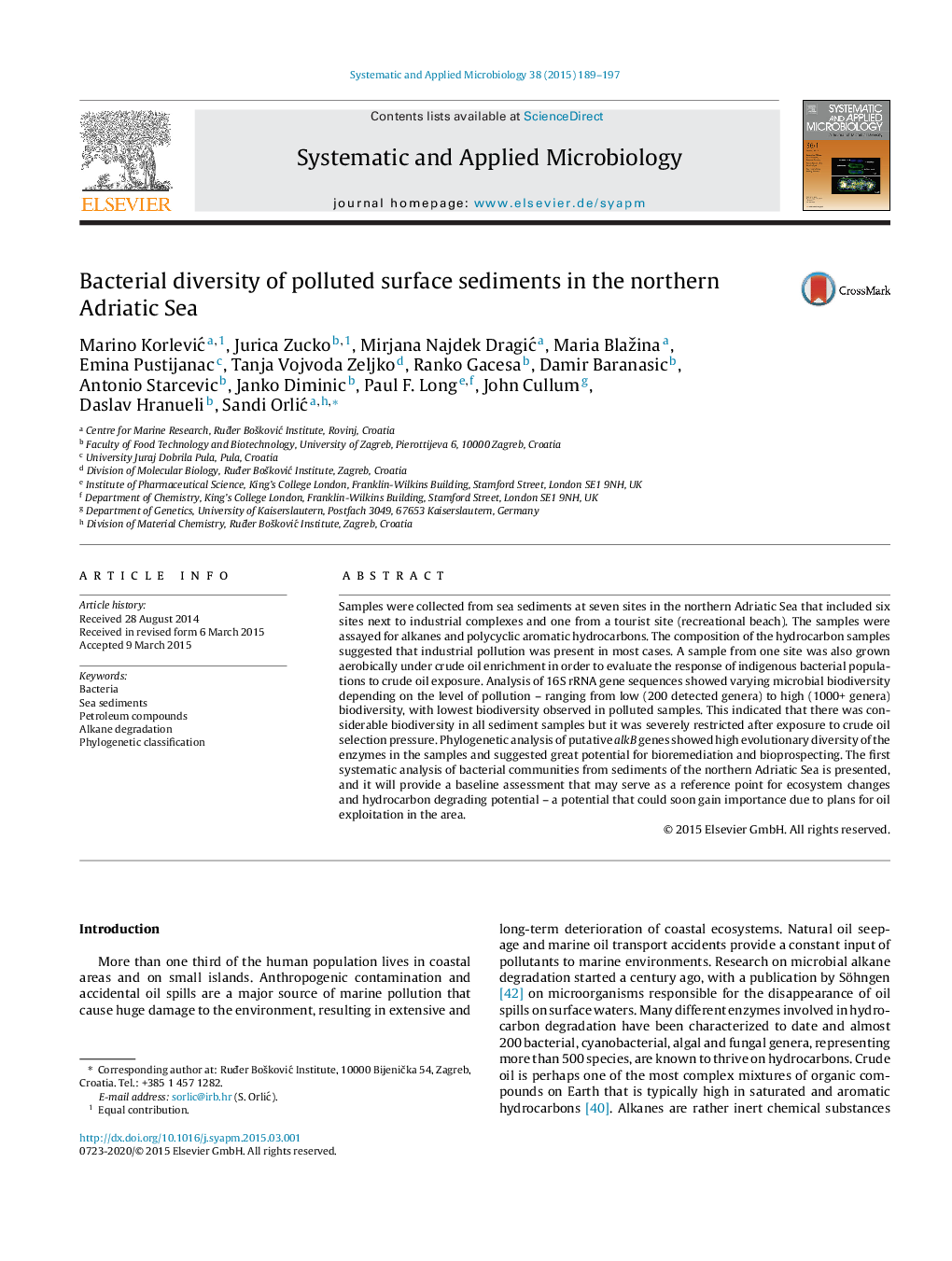| Article ID | Journal | Published Year | Pages | File Type |
|---|---|---|---|---|
| 2062995 | Systematic and Applied Microbiology | 2015 | 9 Pages |
Samples were collected from sea sediments at seven sites in the northern Adriatic Sea that included six sites next to industrial complexes and one from a tourist site (recreational beach). The samples were assayed for alkanes and polycyclic aromatic hydrocarbons. The composition of the hydrocarbon samples suggested that industrial pollution was present in most cases. A sample from one site was also grown aerobically under crude oil enrichment in order to evaluate the response of indigenous bacterial populations to crude oil exposure. Analysis of 16S rRNA gene sequences showed varying microbial biodiversity depending on the level of pollution – ranging from low (200 detected genera) to high (1000+ genera) biodiversity, with lowest biodiversity observed in polluted samples. This indicated that there was considerable biodiversity in all sediment samples but it was severely restricted after exposure to crude oil selection pressure. Phylogenetic analysis of putative alkB genes showed high evolutionary diversity of the enzymes in the samples and suggested great potential for bioremediation and bioprospecting. The first systematic analysis of bacterial communities from sediments of the northern Adriatic Sea is presented, and it will provide a baseline assessment that may serve as a reference point for ecosystem changes and hydrocarbon degrading potential – a potential that could soon gain importance due to plans for oil exploitation in the area.
